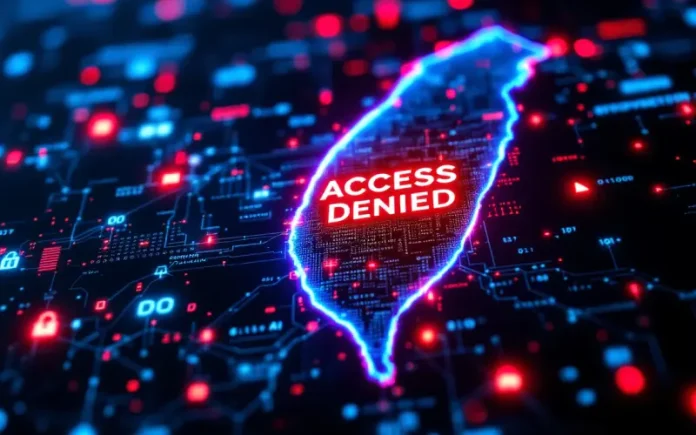DeepSeek AI, an advanced platform that uses artificial intelligence (AI) to process large amounts of data, has been banned in several countries. While the tool offers significant benefits in data analysis and content creation, its controversial features have raised alarms. Governments are increasingly concerned about privacy, security, and ethical implications, which has led to its restriction or removal from certain regions.
In This Article:
What is DeepSeek AI?
AI leverages deep learning technology to analyze data quickly and efficiently. It is used by businesses to generate insights, automate content creation, and enhance customer engagement. Its ability to process vast amounts of information makes it popular among marketers, researchers, and content creators. However, its potential to access sensitive data has triggered concerns about privacy.
Reasons for Banning
Several reasons have led to AI’s ban in some countries. These primarily revolve around data privacy, national security, and ethical concerns regarding AI’s influence.
- Privacy Issues and Data Protection
The ban on AI is mainly due to concerns over its handling of personal and sensitive data. The platform collects large amounts of data, raising privacy risks. Countries like the EU, with strict data protection laws such as GDPR, worry that DeepSeek’s data practices may not comply with these regulations.
- Ethical Concerns: Bias and Accountability
Ethical concerns also surround DeepSeek AI due to its decision-making process. Critics argue that AI can perpetuate biases, leading to unfair treatment. The platform’s “black box” nature makes it hard to hold developers accountable, raising fears of manipulation or exploitation.
- National Security and Surveillance Risks
DeepSeek AI’s ability to process large datasets raises national security concerns, as governments fear it could be used for surveillance or espionage. Its access to vast data makes it a potential tool for malicious actors
- Lack of Regulation and Legal Oversight
The lack of a clear AI regulatory framework has contributed to the bans. Many countries believe AI tools like DeepSeek need more oversight to ensure ethical and legal compliance. Regulators are under pressure to create laws that balance innovation and risk management.
Countries That Have Banned
Several countries have already taken action against DeepSeek AI. Notable examples include:
- The European Union (EU)
The EU has banned DeepSeek AI in several states due to data privacy concerns. Under GDPR, companies must get consent to process personal data, and DeepSeek’s practices have raised red flags, prompting investigations by the European Commission.
- China
China has banned DeepSeek AI, citing national security risks and concerns over its potential for surveillance. The government’s strict control over foreign tech and focus on AI self-reliance has led to resistance against platforms like DeepSeek.
- India
In India, DeepSeek AI has been banned in some regions over data privacy concerns. With new AI laws in the works, privacy regulators have raised doubts about its compliance, and other platforms may face similar scrutiny.
The Global Debate: Balancing Innovation with Responsibility
The global bans on DeepSeek AI highlight the ongoing debate over AI regulation. As AI becomes more integrated into daily life, countries are grappling with how to balance technological innovation with ethical considerations. Governments are increasingly focused on ensuring that AI systems are transparent, accountable, and safe to use.
The bans on DeepSeek AI raise critical questions about the future of artificial intelligence. While AI offers tremendous potential, it must be used responsibly to avoid unintended consequences. Governments and developers must work together to establish clearer guidelines that protect individuals and promote trust in AI technologies.
ALSO READ – OpenAI CEO Discusses Low-Cost AI Ecosystem with India’s IT Minister




